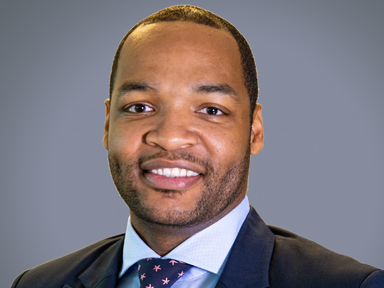
By Omari Faulkner
Note: This originally appeared on the SHRM blog page and is reprinted here with permission.
Career Diversity Is a Builder – In Today’s Increasingly Diverse Workforce and Economy, Embrace it.
As a former NCAA Student-Athlete, no day was the same, each opponent created a new challenge as did a rigorous academic schedule and no season nor semester was like the previous one. This experience prepared me to be adaptive, prepared and embracing towards new opportunities throughout my career path.
I currently serve in a myriad of roles – I’m a Dad, husband, an Employee and Brand Ambassador for a leading tech company (ManTech International), a Public Affairs Officer in the Navy Reserves, Professor, Mentor, Strategist, Public Speaker and President of a non-profit. My career diversity has emboldened my skill sets, job knowledge and, most importantly, it has expanded my international network across multiple industries.
As a child, I vividly remember my father emphasizing the importance of observing a process before engaging in the process, “I became a great truck driver by watching and learning from my father”, he would say while stressing the importance of my grandfather’s influence on his career aspirations and, in my opinion, led to him being the best truck driver in the world because he learned from the best.
So, when presented with an opportunity to learn you maximize it and share your lessons with others to do the same. When I had the opportunity to interview SHRM President & CEO, Johnny C. Taylor, Jr., a leading Human Resource expert and proven change agent, I sought to probe deeper into his career and the important motivators and drivers of influence, which have moved him throughout his vastly diverse career and leadership roles.
After completing your educational studies, what were your career aspirations? Did you know your exact professional goals upon graduating? If, so what were they?
From the age of 7, I knew I wanted to be a lawyer. My interests were sparked by watching television shows like Perry Mason and The People’s Court. So, I enrolled as a freshman at the University of Miami with a very clear plan to major in Journalism (I’ve always loved reading and writing) and then head to law school. I completed my undergrad program in three years and immediately went to Drake University to pursue a joint degree in law and mass communications. Upon graduation, I was fortunate enough to land a plum job in a major law firm at the ripe old age of 23, which served as the springboard for my career.
In your former role as CEO of the Thurgood Marshall College Fund (TMCF), can you explain what drove you to assume the position? What did you seek to accomplish in that role? What was one of your most major accomplishments?
I joined TMCF as a fluke – I hadn’t attended a Historically Black College and University (HBCU), didn’t have any higher education experience (other than as a student) and I did not have a PhD. More importantly, I had just finished building a tech company as its founding CEO and had decided to retire. At that time, I had no interest in working at all – nonprofit or otherwise. But I was serving on the TMCF Board of Directors in 2009 when the organization experienced an unplanned change in leadership, and I agreed to help lead the search for TMCF’s new CEO. In a surprising turn of events, the Founder and the Board Chair talked me into leaving retirement and coming back to work.
Frankly, my goal in assuming the role was pretty straightforward: Get the “business” of TMCF back on track and then return to my life as a new dad (my daughter was born six weeks after I assumed the role). As I mentioned above, I didn’t have any grand plan to work in the non-profit higher education space. What was supposed to be a one- or two- year business turn-around assignment for me became a wonderful seven-and-a-half-year journey to help rebuild an iconic institution.
One of my favorite sayings is, “No Money – No Mission.” So, while there are several things my team and I achieved during our run, my most significant accomplishment during my tenure was raising over $100 million cash (not pledges) to deliver on TMCF’s mission and purpose. From a $43 million investment from Apple to a $26 million gift from Charles Koch and the Charles Koch Foundation, we were able to secure critical dollars to help HBCUs and their students succeed.
What motivated you to engage and impact the future of HBCUs in the United States?
As I mentioned above, I didn’t attend an HBCU. But given the fact that so many of my role models (teachers, lawyers, physicians and business executives) would not have had been able to attend college were it not for HBCUs, I grew up always appreciating the fact that HBCUs created the people on whose shoulders I would stand as I pursued my career.
I often explain it this way: “While I may not have matriculated on an HBCU campus, I (and so many of my generation) am a product of HBCUs, because these institutions educated the people who eventually educated me. I wouldn’t be where I am without the benefit of being able to channel the professional careers and pursuits of so many talented and committed HBCU graduates.”
In short, my deep commitment to HBCUs is grounded in an overwhelming sense of debt I owe HBCUs and their graduates.
With diversity being a significant conversation throughout our country’s workforce, what do you believe is the driver to unify and connect diverse groups within an organization? How would you advise an organization to connect effectively with employees from various backgrounds on a common foundation?
I fundamentally believe our best hope in getting people in the workplace to embrace diversity is to shift the approach from one of focusing on our differences to one of focusing on what we have in common.
For years, fairly unsuccessfully I might add, most diversity and inclusion initiatives have focused on reinforcing the obvious: that we are different. I think it’s time that we employ an alternative approach—one that forces different people to explore how many ways they are alike. I just don’t think it’s natural to focus on differences when we meet people.
Think about what you do when you come to a gathering at someone’s house and meet strangers. The normal human interaction goes something like this: “My name is Johnny. What’s yours?” Then you ask a series of questions of the other person to find what you have in common. Where did you go to school? What’s your hometown? What do you do you do for a living? The goal is not to determine how different you are from this person; it’s to find a common experience or characteristic that can be used to build upon.
HR and Diversity practitioners must create new opportunities for their employees to get to know each other – especially employees who are visibly different (e.g., gender, national origin, race, age, ability, etc.). We can do this in simple ways like encouraging employees to have lunch once per month with someone they don’t already know – someone who is different from themselves.
As simple as it sounds, this cross-pollination of sorts could yield some really nice and complementary relationships. This is just one example – and there are many – that could lead to the kind of improved, inclusive workplace culture that we all long for.
Johnny C. Taylor’s diverse career experiences and the mission drivers which have motivated him throughout the years are a positive example for those who seek to understand a winding career path - an experience that leads to deeper self-discovery, personal motivators, and impactful results.
Follow Omari on Twitter at @OmariFaulkner


